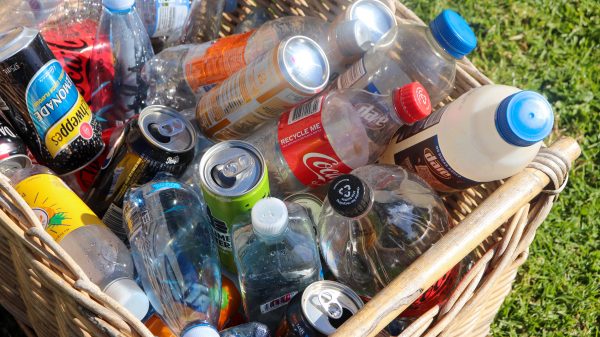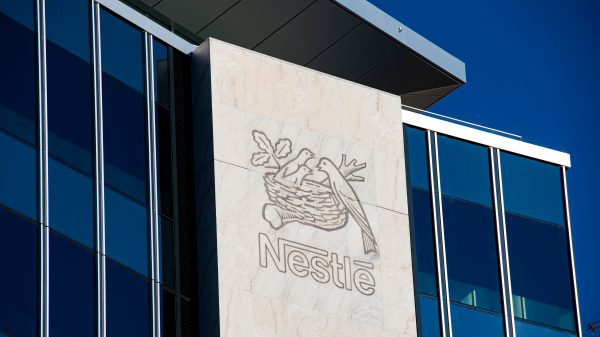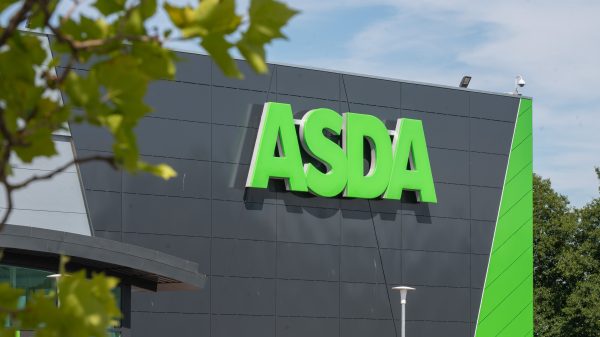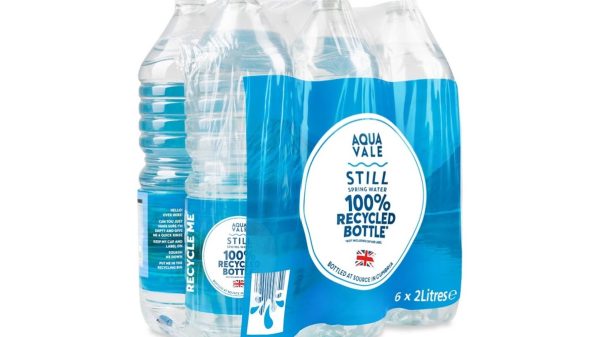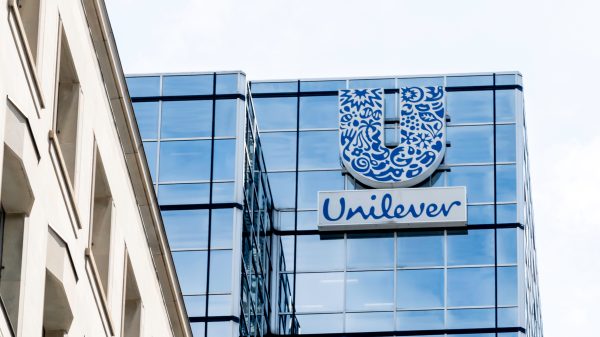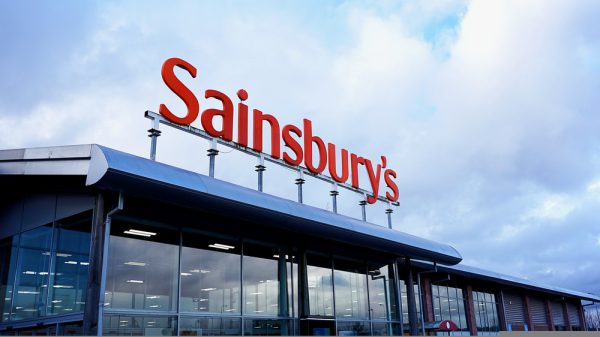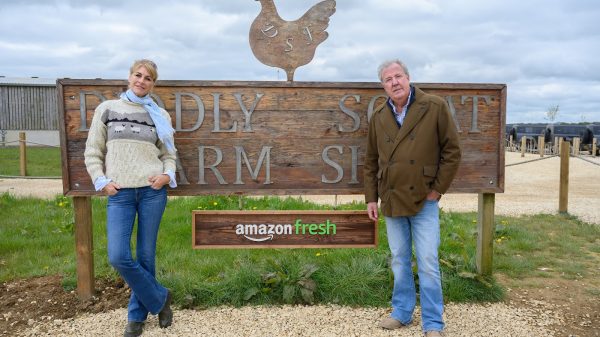Dairy supplier Freshways – which supplies a number of UK supermarket and convenience chains – has come under fire after a BBC documentary revealed that one of its milk and dairy suppliers, Madox Farm, had seriously breached animal welfare laws.
Freshways currently distributes to 5,000 outlets across the UK including Amazon Fresh, Londis, Budgens and Costa Coffee.
In a BBC One Panorama documentary released on Monday, Wales-based Madox Farm was exposed for animal abuse, with undercover footage showing workers kicking and punching cows in the face and stomach and hitting them with sharp, metal shovels.
It was also revealed how sick and injured cattle were left to suffer. On one occasion a cow was left in excruciating pain after her unborn calf had died in utero. Instead of helping, farmers left the cow to die overnight.
“This is one place where they’d rather just save the money,” the veterinarian was recorded saying.
READ MORE: Factory farming “strongly opposed” by 80% of UK public
The farm in question was revealed to be a supplier for food and dairy wholesaler Freshways, which supplies to supermarkets and convenience stores Amazon Fresh, Londis and Budgens. Grocery Gazette has contacted the retailers in question, but has not yet not received any comment.
Conversely, while some reports have listed Morrisons as a Freshways retail partner, the supermarket told Grocery Gazette, that it “can be very clear that [Freshways] are not a supplier” and was “definitely not working with them in 2021”.
A spokesperson for the Big 4 grocer went on to say they “don’t think we have ever worked with them”, and have confirmed to Grocery Gazette that Freshways is “not a supplier to our cafes either”.
Morrisons’ 392 cafes are currently the 7th largest foodservice business in the UK, serving 800,000 customers some 35 million meals each year.
Commenting on the programme, The Royal Association of British Dairy Farmers (RABDF) said it is “saddened” by the detailed numerous cases of animal abuse on the Welsh dairy farm, particularly the lameness and removal of calves from their mothers at birth.
“Lameness was an issue highlighted on the programme with one vet suggesting up to 30% of cows expected to be lame in the UK. The industry is working hard to overcome lameness with diagnostic, early warning tools helping highlight the issues early,” says RABDF managing director Matt Knight.
The documentary featured an interview with an investigator from welfare charity Animal Equality, who spoke about the distressing and violent methods he had witnessed farm workers using to attempt to get a cow who had collapsed back to her feet.
“The first reaction was to kick her forcefully in the flank, in the stomach,” he said, adding that “the second reaction of other workers was to kick her in the back and the consensus was that to pull her tail forcibly is the right thing to do”.
READ MORE: Suppliers speak out about Farmdrop collapse
Veterinary surgeon Marc Abraham OBE describes the treatment as “some of the most alarming animal abuse and neglect that I have encountered during my time as a veterinary surgeon.”
“There are a number of concerning incidents where appropriate medical care was not provided to sick, lame and injured cows, as well as several occasions where cows were struck violently and repeatedly.
“There is no doubt in my mind that these cows would have suffered significantly and that their prolonged pain was entirely avoidable.”
Commenting on the exposure, a spokesman for NFU Cymru – the leading agricultural organisation for farmers in Wales – tells Grocery Gazette: “In Wales, and across the UK, we have a range of farming systems and every system is required to uphold high standards of animal welfare and husbandry.
“We do not consider that the allegations made and footage contained within the Panorama – A Cow’s Life: The True Cost of Milk documentary accurately reflect the high standards of animal welfare implemented by farmers across the country. Animal health and welfare is a top priority for British farmers.”
Taking a different stance is Advocates for Animals solicitor Edie Bowles, who believes that “the treatment of cows at this farm is in clear contravention of the law”.
“Not only are there incidents of direct violence towards cows, there is a culture of neglect and substandard care causing gross suffering, all of which is contrary to the Animal Welfare legislation” Bowles states.
Animal Equality UK executive director Abigail Penny adds that it is urging authorities to use the full force of the law to hold Madox Farm accountable for its abusive treatment of animals.
She says: “A conviction of cruelty won’t help those cows who were brutally beaten or left to die in agony overnight, but it will send a strong message to this industry that the UK will not tolerate such cruelty.
READ MORE: Waitrose pledges support for pig farmers
The Vegan Society has claimed the investigation by BBC One is a “shocking and disturbing exposé of the dairy industry”, saying it only really skimmed the surface of the problems faced by dairy cows, which have been revealed in recent investigations.
“We know that they are increasingly taken off lush pastures to be permanently housed indoors in zero-grazed factory farms,” it says. “The industry is a major contributor to the cruel live animal export trade and destructive deforestation, as soya is a key ingredient in cattle feed.
“With the rising popularity of plant-based milks, butters and cheeses, consumers have a convenient, tasty alternative to dairy milk, which makes it an easy choice to make to avoid dairy cow suffering.”
As a result of from this fall-out, Freshways has issued an official statement, stating that animal welfare is of “paramount importance” to its business ethics and supply chain.
It said: “We are shocked by footage which we saw for the first time on Monday 14th February 2022 in relation to one of Freshways many supplying farmers. We ensure all farms supplied to Freshways are signed up to the Red Tractor Assurance scheme which sets the industry standard for animal welfare
“We will be working around the clock with Red Tractor to ensure these allegations are fully investigated. Furthermore, all appropriate action will be taken to remedy the situation immediately.”
So what will all this mean at the supermarket shelves? According to the most recent AHDB analysis of Kantar data, supermarket dairy sales across all categories in 2021 remained “significantly elevated” versus pre-pandemic levels.
As a result, dairy value sales were up 11.3% compared to 2019, with volumes up 6.3%. Cheese volumes climbed 13.2%, with butter volumes up 16.5% and milk volumes 5.8% higher than in 2019.
“As a staple product, dairy will continue to do well in 2022, despite growth slowing last year as restrictions were eased,” commented AHDB senior retail insight manager Kim Heath.
Heath also revealed that 77% of consumers saw dairy as “a vital part of their everyday food”, with 99.5% of UK households shopping for dairy products every month in 2021.
However, as a direct result of the documentary, a Grocery Gazette poll revealed that 43% of people said they will be ditching dairy as a result of what they saw, with a further 9% remaining undecided.
Many more have taken to social media to express their anger at the documentary, sharing their decision to buy alternative dairy products instead of supporting the industry.
Others responded to NFU Cyrmru deputy president Abi Reader who stated in the documentary that “even just one extra penny per litre will enable a farmer to upgrade or take advantage of new technology out there so the cows are getting the best care they can”.
One user said they “could never touch a drop of milk again”, while another said “the answer is not to charge more for milk. The answer is to STOP drinking it”
With the public taking these issues to heart, the danger for the dairy sector is that the abuse shown by Panorama and other similar reports could impact on how consumers see the industry – and, ultimately, whether they are willing to put their hard-earned money behind it.
Click here to sign up to Grocery Gazette’s free daily email newsletter


